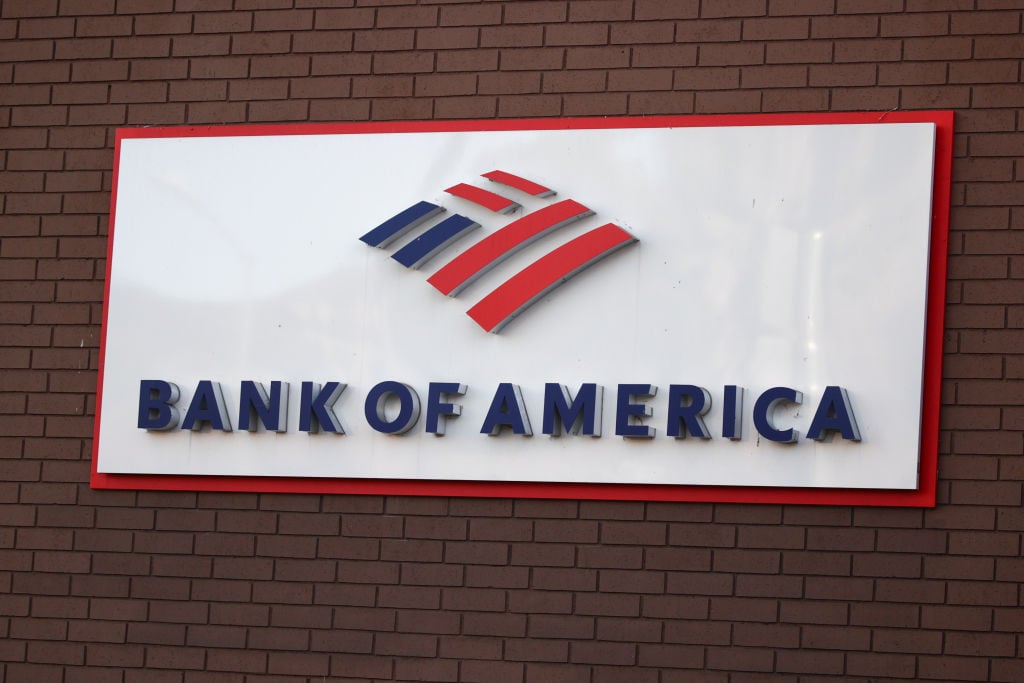With the news that Bank of America (NYSE: BAC) is on track to notify more than 200,000 mortgage loan customers of their possible eligibility for principal forgiveness, the whole messy foreclosure business once again takes the limelight. Of the five banks involved in the settlement earlier this year with state attorneys general and the U.S. government, B of A owes the most out of the $25 billion kitty -- $11.8 billion.
So how does Bank of America stack up in the stability department against fellow miscreants Ally Financial, JPMorgan Chase (NYSE: JPM), Citigroup (NYSE: C), and Wells Fargo (NYSE: WFC)?
B of A is looking the worse for wear
With the exception of Ally, which is contemplating bankruptcy for its mortgage unit despite being three-quarters taxpayer-owned, B of A is looking the least healthy. Its anemic disposition hasn't gotten it down, however, and the bank has proved itself to be an exceptional scrapper. Now that it must play nice after the robo-signing settlement, it can focus its energies on scuffles still on its plate, like the $8.5 billion mortgage bond settlement deal it hopes to strike with investors who were burned by its 2008 acquisition of Countrywide Financial. Late last month, a New York state Supreme Court judge ruled to not allow the proceedings to escalate from a simple hearing into a more expansive one, at the behest of AIG and other investors upset with the settlement numbers. The battle rages on, of course, but at least now will remain limited in scope.
B of A is also locking horns with more than 1,000 former Merrill Lynch brokers, a group that bailed after Bank of America took over in 2009. While the brokers claim the bank owes them hundreds of millions of dollars in brokerage fees, B of A claims to have no obligation at all, saying that many who filed claims signed away any rights to deferred compensation when they left the company after the merger. The bank has been involved in discussions with the plaintiffs' lawyers, and a recent ruling in favor of brokers embroiled with Bank of America in a separate compensation claim seems to indicate that B of A won't get off cheap.
The bank is also battling rising personnel costs, and has recently vowed to lay off another 2,000 employees, on top of the 30,000 job cuts already in the works. These new staff cuts are unusual in that they are in the money-making units that the bank had beefed up since it acquired Merrill Lynch. According to The Wall Street Journal, personnel costs increased 17% during the years 2009 to 2011, while revenue fell by 22%. Quite a apart from the staff purges, top-level executives have been leaving as well, unhappy with the roles allotted them. Two of the four have taken positions with UBS.
JPMorgan, Wells Fargo, and even Citi are making progress
Citi, who along with Ally, Suntrust, and MetLife failed the Federal Reserve's most recent stress test, may actually be in a marginally better position than B of A. Its Q1 report wasn't brilliant, but neither was it a complete washout. Though the bank missed a bit on EPS, revenues down 2% year over year were in line with estimates, unlike B of A, whose revenues dropped by 10% from the previous year and missed badly. Still, the news was less than stellar, and Citi shareholders rejected CEO Vikram Pandit's pay package, apparently considering the hefty compensation not in line with actual company performance.
JPMorgan is recovering nicely, however, showing strong Q1 numbers and beating estimates by a healthy margin. The bank has been busy plumping its bottom line, as evidenced by its success with liquidating bad mortgage loans via short sales rather than foreclosures, reducing losses on those loans by 15%. The company has also found a way to raise fees on customers who maintain low checking account balances by changing them to prepaid debit cards, whose fee schedules were not addressed in the recent reform measures. Also, if the bank agrees to handle Delta Air Line's purchase of an oil refinery belonging to ConocoPhillips, the partnership would add another lucrative revenue stream to its balance sheet.
The most robust of all seems to be Wells Fargo, which turned in a positive Q1 report. The bank has been leaving other banks in the dust when it comes to mortgage lending, writing almost 34% of all mortgages in Q1, compared with nearly 11% for JPMorgan and a bit over 4% for Bank of America.
Is Bank of America worth a look?
Some believe that Bank of America is a good long-term buy, that it will gain strength as it continues to bulk up reserves and profitability. I just don't see recovery in B of A's future to make it worth the risk. There is too much turmoil and uncertainty, and the boatloads of trouble that the bank inherited from its acquisitions of Merrill Lynch and Countrywide just doesn't speak well to its turnaround. All-in-all, the situation to me smacks of deep, institutional problems.
Right now, Bank of America is adrift, battling on all fronts and not concentrating on things that will make money, like writing new mortgages. I think investors will be avoiding this ship of fools for a very long time.
That being said, investing in the banking sector has helped make many savvy investors wealthy, including Warren Buffett. Discover some gems along with timely ideas in our report on bank stocks: It's free, and it's right here.
Editor's note: A previous version of this article mistakenly said Bank of America failed the most recent Fed stress test. The Fool regrets the error.






